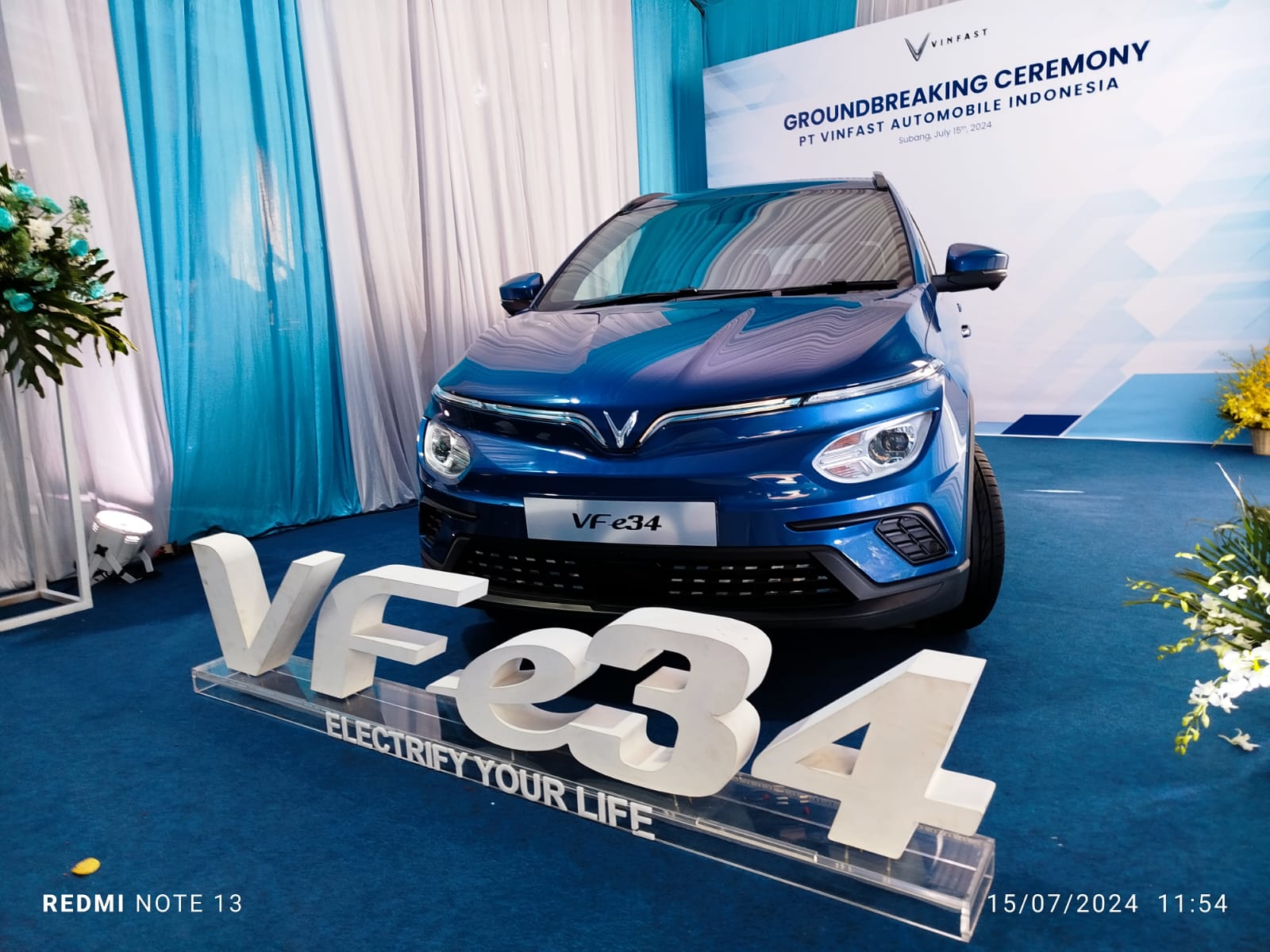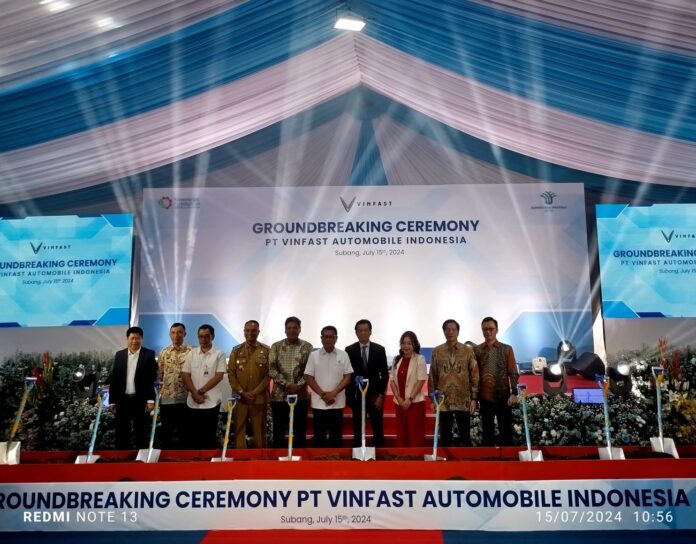VinFast has finally commenced construction of their first factory in Indonesia, located in Subang, West Java. The groundbreaking ceremony was attended by Presidential Chief of Staff Moeldoko, Acting Regent of Subang Imran, Nguyen Dhuc Thanh (Vingroup Chairman and Senior Advisor), and Temmy Wiradjaja (CEO of VinFast Indonesia) on Monday (15/7/2024).
“The laying of the first stone event is held just a few months after VinFast officially entered Indonesia, reaffirming our strategic expansion and competitiveness in Southeast Asia, while marking a significant milestone in our strategy to become a leading player in one of the most promising electric vehicle markets in this region,” said Temmy Wiradjaja.
He continued, stating that this project demonstrates VinFast’s long-term commitment to Indonesia, boosting the electric vehicle sector, supporting economic growth, and improving the quality of life for Indonesians, including those in Subang, West Java, where the factory is located.
The factory is expected to create job opportunities and utilize local supply chains. Here are some interesting details about VinFast’s factory to be established in Subang, West Java:
Production activities are scheduled to commence by late 2025.
The factory plans to begin production activities by late 2025, aiming to locally produce VinFast electric vehicles.
Production of 4 VinFast electric car models.
The factory plans to produce 4 VinFast electric car models: VF5, VF6, VF7, and VF3. All four models will be manufactured at the VinFast factory in Subang, West Java.
Initial investment of US$ 200 million.
VinFast is investing US$ 200 million for the construction of the Subang factory. This amount represents the initial phase of a total investment of US$ 1.2 billion in Indonesia.
Sole production of electric vehicles.
The VinFast factory in Subang will exclusively produce electric vehicles. They will not utilize the facility for other vehicles such as conventional cars or motorcycles.
Targeting the domestic market.
The Subang factory aims to produce 50,000 electric vehicles annually, targeting the domestic market rather than exports.





